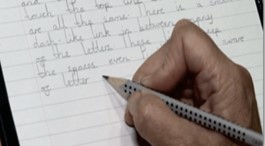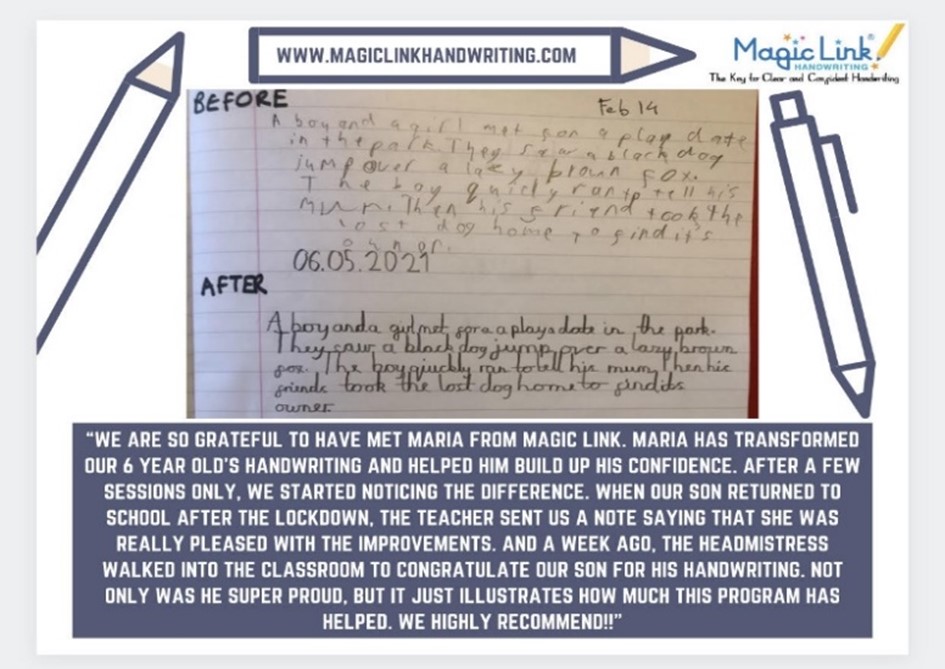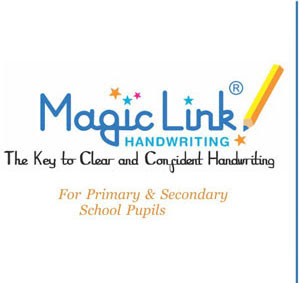By Maria Morris, Certified Magic Link handwriting teacher
There is no question that the pandemic has negatively impacted on the quality of handwriting in young people due to the increased use of, and reliance on, technology. The importance of handwriting has also been called into question and many students and parents have been left asking whether handwriting is on the decline. A poll by publisher Schofield & Simms, found that of 8000 primary school teachers, 83% had seen a decline in handwriting because of the pandemic. Stamina was mentioned as an issue by 72%, while 55% had seen a decline in speed. This was followed by letter size and position (53%) and fluency (51%) and letter joins (48%). Not only is this a major concern due to the very nature of handwriting being a necessary skill for primary through to university aged students, but, moreover, poor handwriting is often attributed to poor self-esteem, low confidence and a lack of ideas, engagement and focus.
Handwriting remains a lifelong skill that is an integral component of the National Curriculum and beyond. The National Handwriting Association is a charity whose aims are to raise awareness as to the importance of handwriting. Handwriting incorporates two dimensions of writing:
- Transcription (spelling and handwriting)
- Composition (articulating ideas and structuring them in speech and writing)

Possible reasons for poor handwriting
- Cognitive overload (busy brain!) resulting in confusion over letter formation, sizes, fonts and styles of writing.
- Heavy curriculum content and knowledge often overrides the teaching of essential skills such as handwriting in schools.
- Lack of guidance and support for teachers on how to teach handwriting in a logical, methodical and memorable way.
- Poor / incorrect grip causing pain and leading to negative associations with writing.
- Low self-esteem and confidence, resulting in a reluctance to write and therefore absent practice, which is needed for improvement. Practice makes permanent!
- Typing on keyboard / computers / phones / other devices hindering handwriting development.
- Bad habits that have been picked up and not addressed nor rectified that lead to confusion and doubt, and therefore slow down the writing process. One example of this is the lead-in stroke / flick, which, the Department of Education clearly states should NOT be taught by schools, but this is often not adhered to.
- Lack of support and structure to promote a positive handwriting learning experience for students with additional learning needs, such as dyslexia, dyspraxia, dysgraphia, hypermobility, ADHD, ASD and Asperger’s Syndrome.
Reasons why handwriting is still extremely important
- Improves focus and concentration without the distractions of a computer or device
- Improves knowledge acquisition and retention (through the act of writing it out and repetition)
- Improves cognitive ability, hand-eye coordination and fine motor skills
- Improves writing ability and skill, including spelling, punctuation and grammar
- Enhances creativity, ideas and imagination, thus encouraging enjoyment of writing
- Despite the move to a wholly digital world for many, handwriting remains a lifelong, daily skill, not forgetting that students still complete all exams by hand, even at university!
- Neat and clear handwriting boosts confidence and motivation
- First impressions count for a lot!
Whilst the quality of cursive handwriting may be declining, it is clear that the value and importance of it cannot be overlooked. The Magic Link handwriting programme, endorsed by the British Dyslexia Association, is taught by many certified Magic Link teachers. This proven handwriting scheme teaches cursive handwriting to 6 to 18 year olds. Both primary and secondary school pupils will achieve success through this systematic and methodical approach, which starts with the perfect grip, position and posture and teaches a method that becomes ingrained in the long-term memory. Students who are confused with their original school teaching can quickly re-learn a fast, simple, neat style, which improves self-esteem and academic performance, and can reduce anxiety about writing. The standard of handwriting may be in decline but thankfully, there is a solution!
Top tips for improving handwriting
- The grip. Make sure you are using the correct type of triangular pen or pencil and that you are not holding it too close to the bottom. No wrap-around thumb and do not press too hard.
- Position and Posture. Sit up straight, feet flat on the floor, no slouching or slanting and do not rest your head or face on the non-writing hand.
- Consistency is key. Work on making your letters consistent in shape and size. Do not use lead-in flicks / strokes as these lead to confusion and inconsistent letter formations.
- Contact Magic Link Handwriting! The programme is highly successful in helping 6-18 year olds to transform their handwriting in as little as five weeks, whilst boosting overall confidence and performance at the same time.


Maria Morris is a certified Magic Link teacher who teaches Magic Link Handwriting lessons from her home in St. Albans. Please see the website, or contact her on 07961 464 568 to discuss any handwriting concerns or questions you may have.
Current and former students and parents of Watling Tutors can receive a 10% discount on lessons if they sign up before the end of December.




